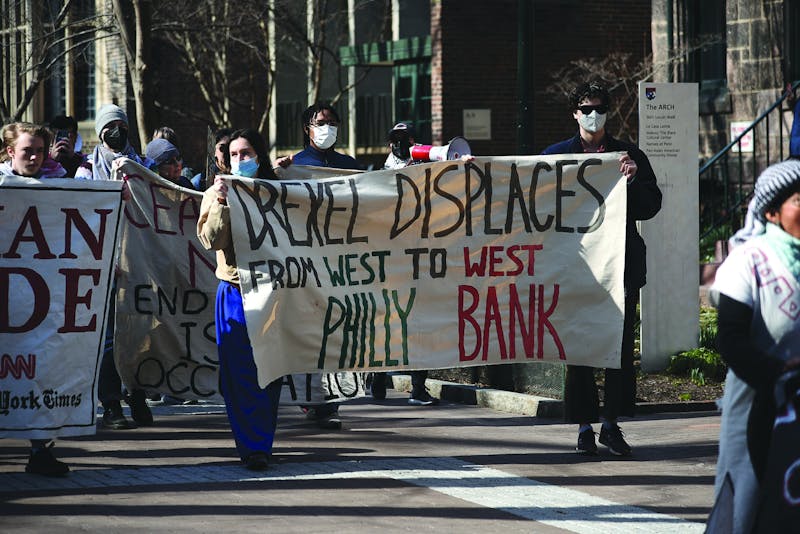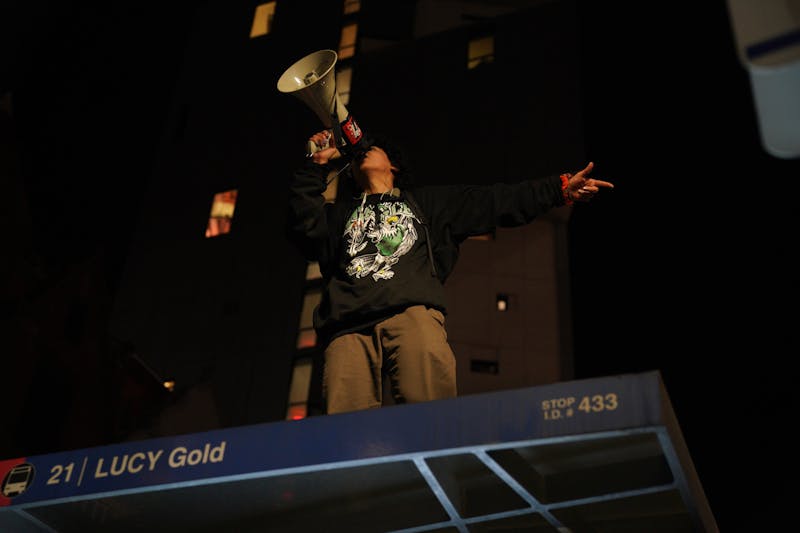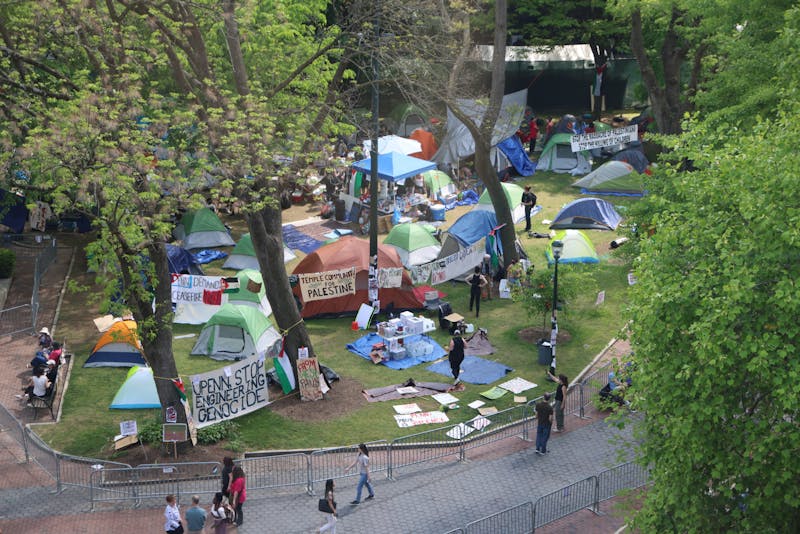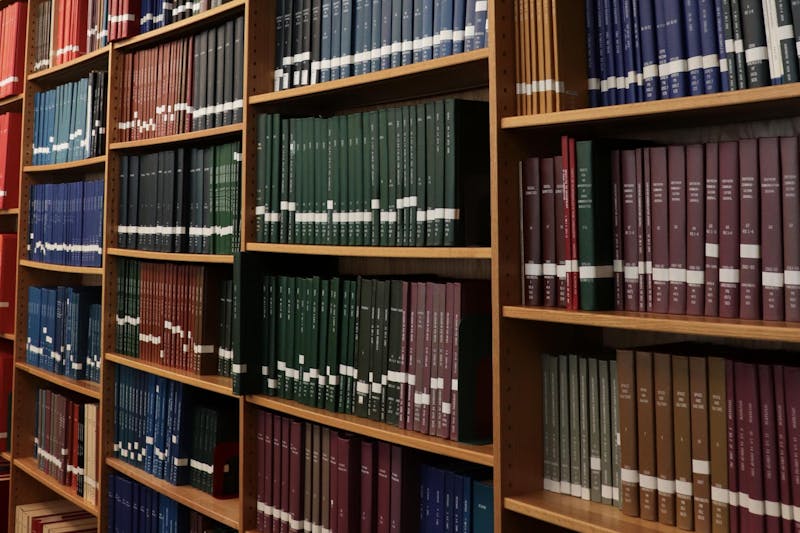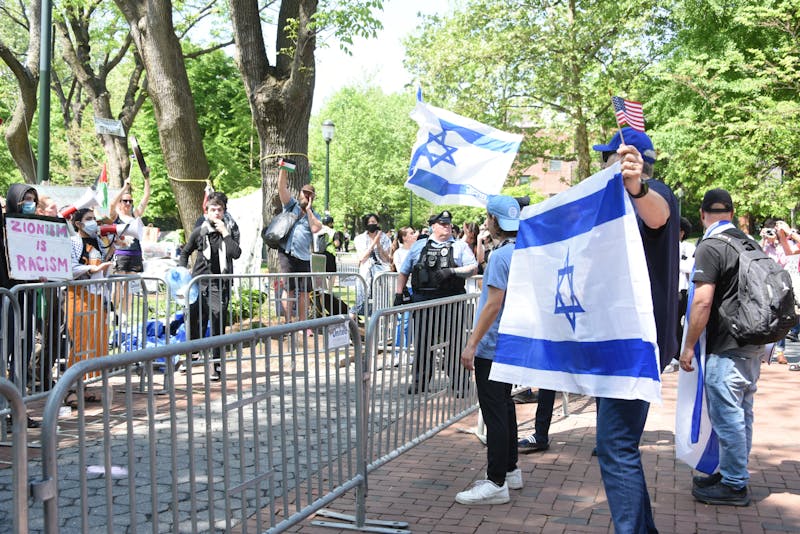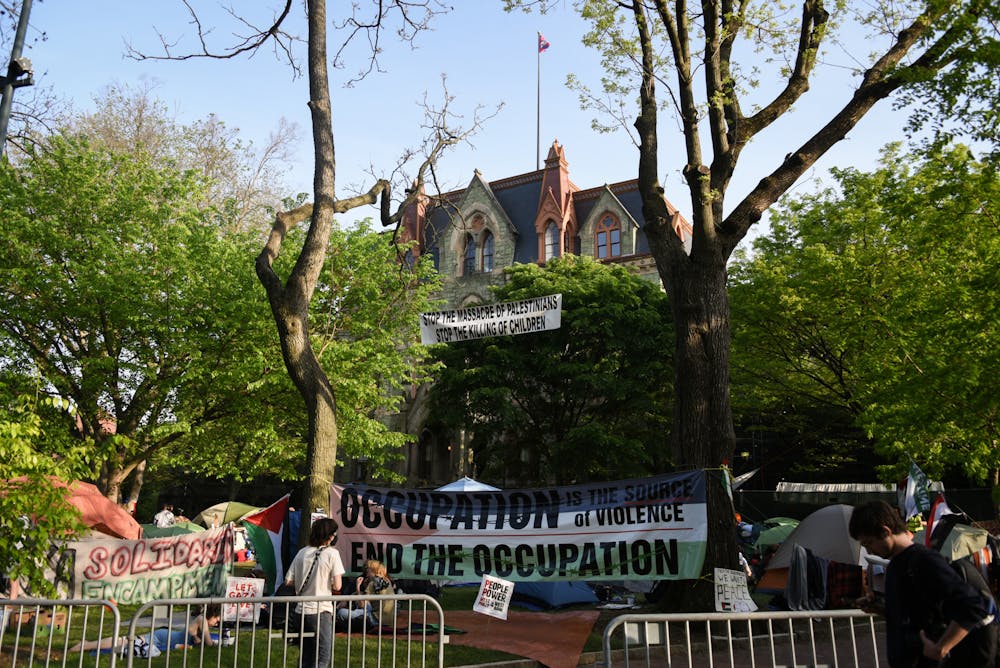
The end of the spring semester is a distinct time on Penn’s campus — melding indifference, as students wait for the school year to finally pull into early summer’s lull, with a sense of haste and urgency to live more and live truly. It is remarkable that at this moment, more than 200 days into the war on Gaza, the college protests are reaching a new fever pitch — proving students have not forgotten about the war. Rather, they are urgently struggling at this moment of decision. The fate of Gazans is an existential question for them, which means it is a question for all of us, provoking the soul of our nation. This student movement is impacting national politics unlike any other since the 1960s, leading to attacks from the White House and Congress, and crackdowns from police, state troopers and university administrations.
The elite university is the spearhead of the American ruling class, but it also possesses a conscience: the students. The spontaneous anti-war protests ripping across American campuses are evidence of a clear demand among youth, a common cry to be on the right side of history.
In Philadelphia, one of the first anti-war encampments started on Penn’s campus and has rapidly become a flashpoint of political struggle in the city. This is the moral force of Penn students taking up their natural responsibility; It is our institution whose science is sharpened for genocide in Gaza.
In Martin Luther King’s prophetic 1967 anti-Vietnam War speech, he spoke of the condemnation of one’s own government as “a vocation of agony.” This is the sacrifice students are making now—calling into question the very foundations of their institutions and the principles that govern them, and hence the basis of their identity as young Americans. And yet, by “the mandates of conscience … we must speak.” If we cannot accept the messaging that the University has veiled us in, then a new identity, based on new values, must be discovered.
This discovery depends on our country’s last great freedom movement, the Civil Rights Movement led by King, which was a movement against the triple evils of war, poverty and racism that made the broader anti-war movement possible. The prophecy and genius of King’s leadership was finally in his call for a “revolution of values,” a movement rooted so deeply in universal human values that any person of conscience could become involved as an agent of historical transformation.
Under King’s guiding ideals, nonviolent strategy became the engine of the most advanced form of student action exemplified by the Nashville student movement of 1960. Their example paved the way for the 1960s, a decade of expanded possibilities for young Americans, as thousands of students made concrete moral choices to align with the Black Freedom Struggle that deepened the purpose of their lives and matured the student identity into a new identity for America.
The tradition of the Civil Rights Movement, which formed a genuine basis for new social relationships between the people of this country, is necessary for the development of the student protests into a transformative movement. As with Columbia University in New York and the University of Southern California in Los Angeles, Penn students will need to find a principled relationship to Philadelphia, where the spirit of King lives among Black working people.
King saw the relationship between war abroad and poverty at home — how war is an enemy of the poor because the US government’s military spending comes at the expense of programs for social uplift. This connection is necessary for understanding the problems of the elite university as one dimension of the struggles faced by broad swathes of the American people.
Now, beyond the immediate outcome of the encampments and demands, the students have opened the door to the larger political task of achieving their relationship with the Black worker, whose future “is precisely as bright or as dark as the future of the country,” as James Baldwin said. This creative relationship contains the key to America’s future and will only be achieved by inheriting King as our continued leader today.
Penn leaves its indelible imprint on those of us who emerge from these vast brick buildings of learning. In a few weeks, hundreds of students from my graduating class will return for our five-year reunion, and I hope it is the current undergraduates who are on our minds when we think of ourselves as graduates of Penn. The example of the current students, who are making real sacrifices and working out difficult political decisions, leads all of us to contend with what we’re making of our lives and how we will shape the future. Will the American identity be one of bloodshed, or one of peace and brotherhood? This is the moment that demands the end of guilt, and the beginning of maturity and courage for our commitment to the new world.
As King finally declared, “With this faith, we'll sing it as we're getting ready to sing it now. Men will beat their swords into plowshares and their spears into pruning hooks. And nations will not rise up against nations, neither shall they study war anymore. And I don't know about you, I ain't gonna study war no more.”
MICHELLE LYU is a 2019 Wharton graduate in statistics. Her email is lyumich@alumni.upenn.edu.
The Daily Pennsylvanian is an independent, student-run newspaper. Please consider making a donation to support the coverage that shapes the University. Your generosity ensures a future of strong journalism at Penn.
Donate







